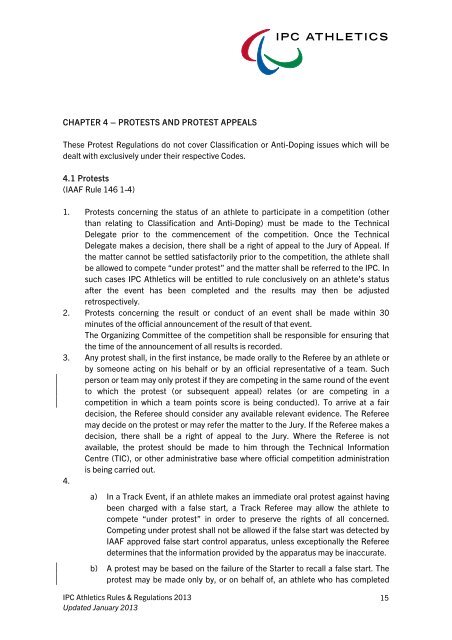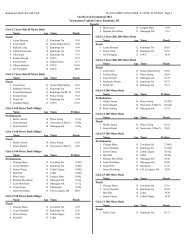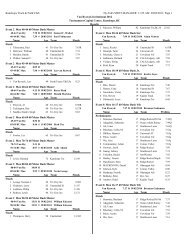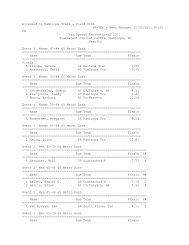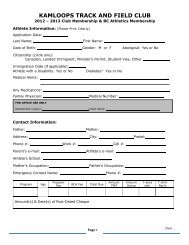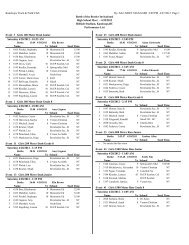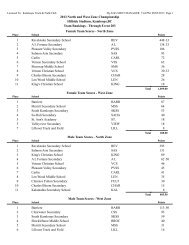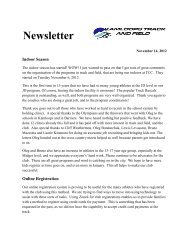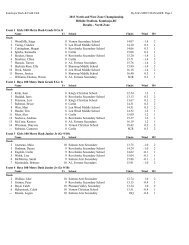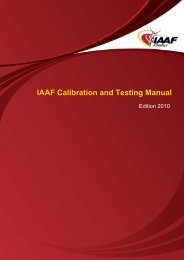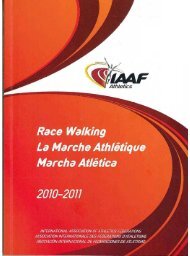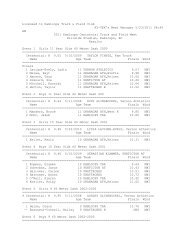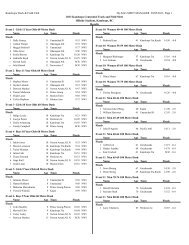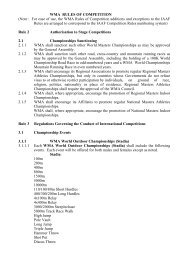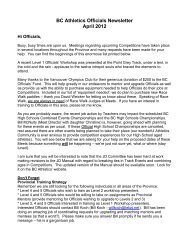2013 IPC Athletics Rules and Regulations - International Paralympic ...
2013 IPC Athletics Rules and Regulations - International Paralympic ...
2013 IPC Athletics Rules and Regulations - International Paralympic ...
Create successful ePaper yourself
Turn your PDF publications into a flip-book with our unique Google optimized e-Paper software.
CHAPTER 4 – PROTESTS AND PROTEST APPEALS<br />
These Protest <strong>Regulations</strong> do not cover Classification or Anti-Doping issues which will be<br />
dealt with exclusively under their respective Codes.<br />
4.1 Protests<br />
(IAAF Rule 146 1-4)<br />
1. Protests concerning the status of an athlete to participate in a competition (other<br />
than relating to Classification <strong>and</strong> Anti-Doping) must be made to the Technical<br />
Delegate prior to the commencement of the competition. Once the Technical<br />
Delegate makes a decision, there shall be a right of appeal to the Jury of Appeal. If<br />
the matter cannot be settled satisfactorily prior to the competition, the athlete shall<br />
be allowed to compete “under protest” <strong>and</strong> the matter shall be referred to the <strong>IPC</strong>. In<br />
such cases <strong>IPC</strong> <strong>Athletics</strong> will be entitled to rule conclusively on an athlete’s status<br />
after the event has been completed <strong>and</strong> the results may then be adjusted<br />
retrospectively.<br />
2. Protests concerning the result or conduct of an event shall be made within 30<br />
minutes of the official announcement of the result of that event.<br />
The Organizing Committee of the competition shall be responsible for ensuring that<br />
the time of the announcement of all results is recorded.<br />
3. Any protest shall, in the first instance, be made orally to the Referee by an athlete or<br />
by someone acting on his behalf or by an official representative of a team. Such<br />
person or team may only protest if they are competing in the same round of the event<br />
to which the protest (or subsequent appeal) relates (or are competing in a<br />
competition in which a team points score is being conducted). To arrive at a fair<br />
decision, the Referee should consider any available relevant evidence. The Referee<br />
may decide on the protest or may refer the matter to the Jury. If the Referee makes a<br />
decision, there shall be a right of appeal to the Jury. Where the Referee is not<br />
available, the protest should be made to him through the Technical Information<br />
Centre (TIC), or other administrative base where official competition administration<br />
is being carried out.<br />
4.<br />
a) In a Track Event, if an athlete makes an immediate oral protest against having<br />
been charged with a false start, a Track Referee may allow the athlete to<br />
compete “under protest” in order to preserve the rights of all concerned.<br />
Competing under protest shall not be allowed if the false start was detected by<br />
IAAF approved false start control apparatus, unless exceptionally the Referee<br />
determines that the information provided by the apparatus may be inaccurate.<br />
b) A protest may be based on the failure of the Starter to recall a false start. The<br />
protest may be made only by, or on behalf of, an athlete who has completed<br />
<strong>IPC</strong> <strong>Athletics</strong> <strong>Rules</strong> & <strong>Regulations</strong> <strong>2013</strong><br />
Updated January <strong>2013</strong><br />
15


